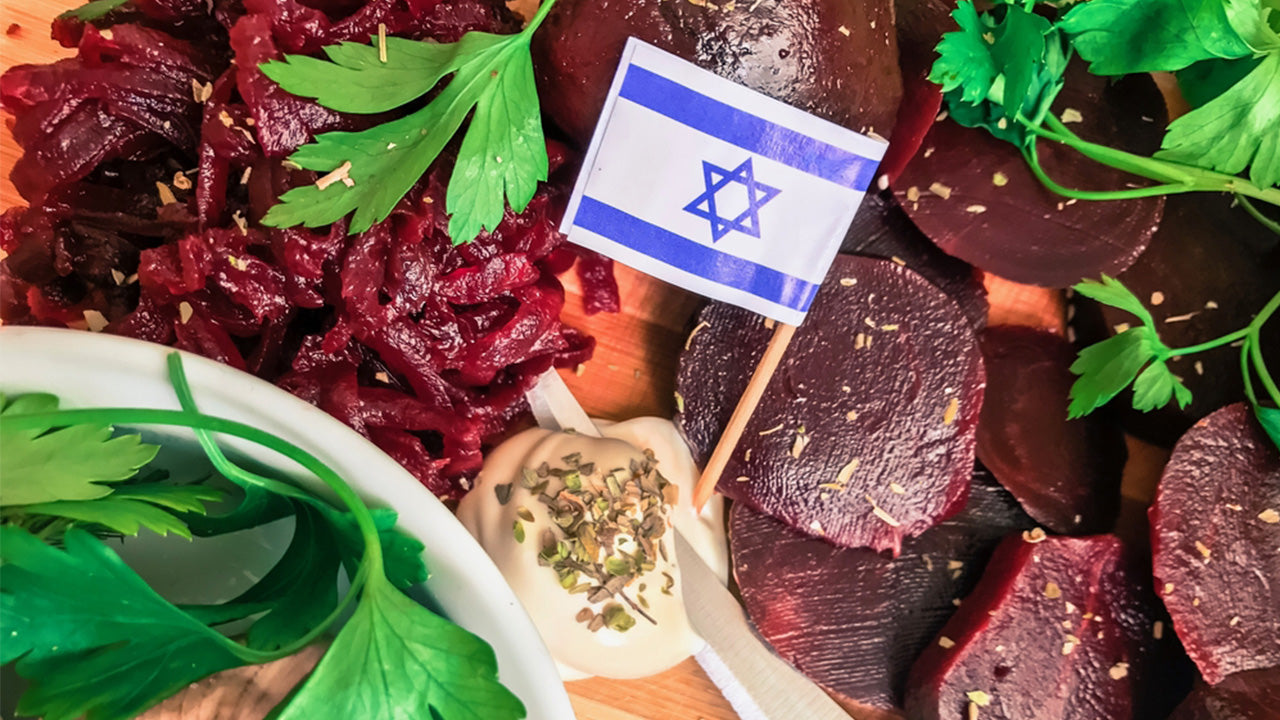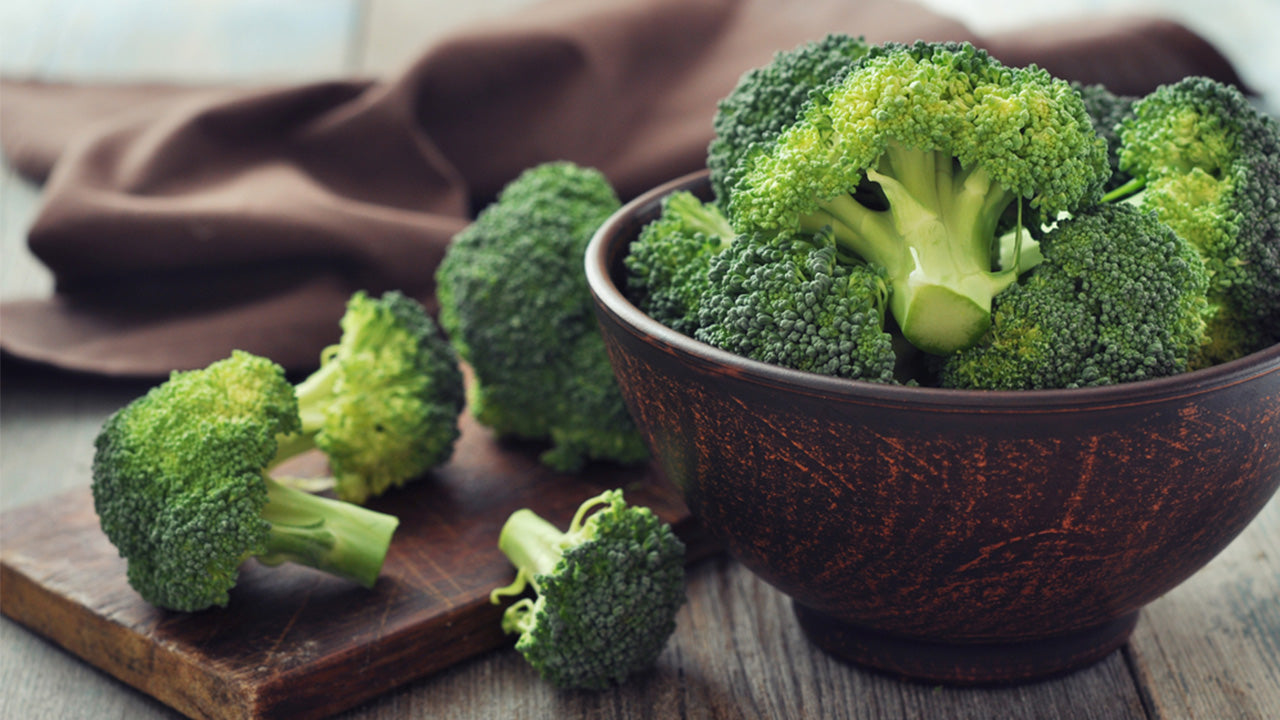What Is Kosher: Essential Guidelines for Kosher Living
 By: by Amino Science
By: by Amino Science

The laws of kosher define the foods that are fit and allowable for observant Jewish people to consume. In this article, we’re exploring these dietary laws, the acceptable and the prohibited foods, and the rituals involved with keeping kosher.
Who’s Keeping Kosher?
Kashrut, or Jewish dietary laws, were commanded by God to the children of Israel, and the laws were eventually transcribed into the Bible, the Mishnah, and the Talmud. For 4000 years, kosher living has been central to Jewish culture.
The kosher food market has seen quite remarkable growth in the last decade, as more and more people are turning to foods labeled kosher or pareve. Part of this increase is believed to be due to the rise in serious food-borne illnesses caused by unclean or mishandled foods.
Another segment of the population that is reaching for kosher foods are those with food allergies. Kosher foods must be clearly labeled meat, dairy, or neutral, which allows for quick identification of known allergens.
What Does Kosher Mean?
The Hebrew word “kosher” literally translates to “fit” in English. Observant Jewish people (those who adhere to Jewish dietary laws) believe that kosher laws benefit health and the humane treatment of animals, and shield against assimilation into communities and other religions. Kosher isn’t just about what Jewish people can and cannot eat. It is about tradition and closely held religious dietary laws. According to the most recent National Jewish Population study, only 21% of American Jewish people are kosher.
Kosher foods must meet complex and strict standards set by Jewish dietary law. All foods must be Kosher certified or approved in order to be considered safe for consumption. Kosher certification requires rabbis to audit the procedures involved in the killing, handling, production, and packaging of foods.
Keeping kosher isn’t just about the food you eat. It also dictates what foods can and cannot be eaten in combination with each other. And, according to The Society of Food Hygiene and Technology, kosher laws apply to non-food related products including food containers, cleaning products, cosmetics and beauty products, and even water softeners.
Kosher Laws
Jewish Dietary Laws can be complex and confusing for those not raised in the Jewish faith. Here are some of the kosher laws, quickly identified.
- Certain species of animals and their milk and eggs are permitted, but other animals are forbidden.
- Meat and milk can never be combined. For example, you can’t serve cheese with spaghetti and meatballs or drink milk with a meal containing any type of meat.
- Separate utensils must be used for meals containing meat and for meals containing milk.
- You must wait a certain amount of time between consuming meat and milk or dairy products.
- Meat must come from allowed animals slaughtered in a specific, painless manner known as Shechita.
- Fruits, grains, and vegetables are always considered kosher, but they must be completely insect-free.
- Wine or grape juice must be Kosher Certified.
- All processed foods require certification by a Kashrut Certifying Agency or a Rabbi.
- All eating establishments, in order to be considered kosher, must be certified by a Kashrut supervision agency or Rabbi.
- During Passover, no unleavened products made from wheat, barley, oat, spelt, and rye can be eaten.
- Some communities also prohibit corn, soy, legumes, rapeseed, peanuts, peas, beans, and rice during Passover.
What Is Kosher Food?
There are three main categories of kosher foods. Each category requires special handling and considerations in order to be considered kosher.
- Meat: Any meat or bones from approved mammals and fowl.
- Dairy: Any milk or milk product including butter, cheese, ice cream, yogurt, or cottage cheese.
- Pareve: All other foods that are neither meat nor dairy. Eggs are considered pareve as are all fruits, vegetables, and grains. All foods must be insect-free.
Kosher meats:
- Bulls
- Cows
- Sheep
- Lambs
- Goats
- Veal
- Venison
- Elk
Kosher poultry/fowl:
- Chicken
- Turkey
- Duck
- Goose
Kosher dairy:
- Allowed from kosher animals only.
- A Torah-observant Jewish person must be present from milking to the end of processing of all dairy to ensure only milk from kosher animals is used.
Kosher fish: Fish are considered Pareve, but they are never to be eaten with meat. Only fish with fins and scales can be consumed including:
- Tuna
- Salmon
- Herring
- Anchovies
- Flounder
- Fluke
- Halibut
- Mackerel
- Red snapper
- Sea bass
- Sole
- Trout
Kosher grains: All grains are kosher except during Passover. However, all grains must be insect-free.
Kosher bread:
- Bread must be baked by a Jewish person in a Kosher home or certified Kosher bakery, or baked by a non-Jewish professional baker under the supervision of Jewish authorities.
- No dairy products can be used in bread production, including whey.
Kosher fruits and vegetables: All fruits and vegetables are kosher, but they must be carefully examined for insects.
Packaged foods: Must be labeled “Kosher Certified” and free from non-kosher additives, including some common vitamins and minerals.


Foods Prohibited Under Kosher Law
| Pork | Rabbit | Squirrel |
| Bear | Dog | Cat |
| Camel | Horse | Catfish |
| Sturgeon | Swordfish | Shellfish |
| Reptiles | Amphibians | Insects |
| Cheese made with rennet | Hybridized foods including GMOs | Scavenger birds |
| Wild game | Milk, dairy & eggs from non-kosher animals |
Proper Handling of Foods
Foods must be handled according to Jewish law from the time they are harvested to the time they are consumed. Here are some of the guidelines that must be followed to be kosher.
Separation of Meat and Dairy
Meat and dairy cannot be cooked together or consumed together. These foods also require a total separation of preparation areas, table coverings, countertops, cutlery, dishes, utensils, cookware, dishwashers, stoves, and refrigerators. This is to ensure that cross-contamination never happens, as even the slightest transfer of residue from meat to dairy, or vice versa, deems a kosher food no longer kosher.
Slaughter of Animals
Allowable mammals must be slaughtered according to very stringent guidelines in order for the meat to be considered kosher. According to Jewish faith, God shared the methods of slaughter with Moses on Mount Sinai. Additionally, kosher meats require proper bloodletting and processing to meet kosher standards.
- Only highly-trained Torah-observant individuals can slaughter animals in a process called Shechitah.
- The slaughter must be done quickly with a smooth cut that severs the trachea, the esophagus, the carotid artery, jugular veins, and the vagus nerve to ensure the animal does not suffer. No imperfections in the cut or tears in the flesh are allowed.
- After slaughter, all tissue must be carefully examined for any sign of disease or injury. Any identifiable defect renders the animal not kosher.
- Forbidden veins and fats from animals must be removed. This includes the veins and the fats from the hindquarters of cattle.
- The blood of all mammals and fowl must be removed. Blood is utterly forbidden. Within 72 hours of slaughter, all blood must be drained from the meat by soaking and salting.
- Any animals killed by hunters are not kosher, as the killing method is not in accordance with biblical law. This includes any meat that is generally considered kosher including elk, venison, and bison. Wild game can be certified kosher if, and only if, it is killed in a Shechitah manner.
Shopping for Kosher Foods
When shopping for kosher foods, it’s important to read labels very carefully. There can be many additives in dairy, meat, and other non-kosher foods, including gelatin from a non-kosher animal.
Even preserved fruits and vegetables can present a problem when keeping kosher. If a food is made with lactic acid, it’s considered dairy and not suitable for meals with meat. Lactic acid is commonly found in olives and pickles.
Other prohibited additives include:
| Stearic acid | Peanut butter from non-kosher origin | Monoglycerides |
| Diglycerides | Shortening | Rennet |
| Albumin | Alpha amylase | Calcium stearate |
| Carmine | Catalase | Emulsifiers |
| Ethyl oleate | Fatty acids | Glucose glutamate |
| Invert sugar | Lecithin | Linoleic acid |
| Lipids | Casein | L-Lysine |
| Modified starch | Molasses | Oleic acid |
| Pepsin | Tallow | Turmeric |
| Vanilla | B vitamins | D3 vitamins |
If you are wondering what is kosher salt and how is it different from table salt or sea salt, you aren’t alone. Kosher salt crystals are actually larger than other salts, rendering them ideal for pulling moisture out of meat. Originally, kosher salt was called koshering salt as it was used in the processing of meat to make it kosher.
Today it is generally just referred to as kosher salt, and it is the go-to salt for chefs around the globe. This is due to its crystal size and the fact that kosher salt has a cleaner flavor because it is iodine-free. As a note of caution, read the labels of kosher salt carefully, as some companies are now adding anti-caking agents that change the flavor and the texture.

Health Benefits of Kosher Laws
Eating foods certified kosher offers a number of health and ethical benefits including:
- Animals are killed according to very strict guidelines in a more humane manner than conventional slaughtering methods.
- Animals are processed to remove all blood, and the event is supervised closely to help protect against contaminants.
- If you have significant allergies, kosher food labeling can provide you with potentially life-saving ingredient lists to ensure allergens like shellfish or dairy are not present.
- If you are vegetarian or vegan, kosher foods that are meatless are safe to consume.
- All fruits, vegetables, and grains must be insect-free.
- Processing of all foods is supervised and therefore believed to be safer.
Honoring Friends and Family Who Are Kosher
When friends and family members are kosher and you aren’t, a little compromise may be in order to meet their needs. The best way to ensure comfort for all involved is to have open conversations about kosher foods, handling, and processing.
When eating out, allow your kosher friends and family to choose a certified kosher restaurant in your area so they are free to join you in a meal. If you are having a celebration at home, be sure that those following kosher laws know they are welcome to bring whatever they need to adhere to their beliefs.

Up to 25% off Amino
Shop NowTAGS: diet plans
Join the Community
Comments (0)
Most Craveable Recipes




 833-264-6620
833-264-6620



















